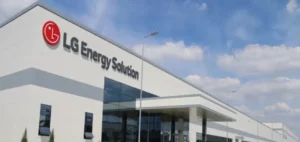Since 2020, global investment in lithium-ion batteries (LIBs) had been growing steadily.
By 2024, this trend will be reversed, with a significant drop in investment.
China, the world leader in LIBs, is at the heart of this slowdown.
After a phase of rapid expansion thanks to strong adoption of electric vehicles (EVs) and large-scale industrial projects, the Chinese economy is facing challenges such as material shortages, rising costs and political changes.
In 2021 and 2022, OWL production in China jumped by over 40%.
However, this pace of growth has slowed, partly due to market maturity and ongoing capacity expansion.
China is now looking to Europe and the USA for new opportunities, although these markets are still in the early stages of development.
Impact in Europe and the United States
In Europe, the dependence of electric vehicles on LIBs is heightening concerns about the decline in investment this year.
Falling demand for EVs threatens infrastructure projects and exposes wider problems in the sector, reflected in the financial reports of original equipment manufacturers (OEMs).
Although subsidies have stimulated industry growth, high energy costs, labor expenses and bureaucratic hurdles are holding back progress. In the United States, demand for lithium has exploded due to concerns about the security of supply chains.
Despite efforts to increase LIB production, industrial infrastructures are still in their infancy.
To reduce their dependence on Chinese supply chains, the United States and Europe are implementing policies to strengthen energy security.
However, China’s dominance in lithium investment and trade seems assured thanks to its privileged access to essential resources.
Challenges and innovations in the battery sector
Consolidation of the LIB industry in China aims to offer high-quality battery products, despite a slowdown in demand.
Recent investments have fuelled a rapid expansion in production capacity, but some players, especially those from non-traditional sectors, are withdrawing from the market due to price competition.
Looking ahead, capacity expansion will not be enough without strong technical support.
The LIB sector is seeing a rise in innovative technologies focused on cost reduction, improved energy density and safety.
Challenges include insufficient high-quality production, but robust companies continue to extend their reach.
Technological innovations are now crucial to the sector’s future development.
Future trends and prospects
Alternative battery technologies, such as lithium iron phosphate (LFP) batteries, are gaining ground.
Tesla is collaborating with CATL to mass-produce LFP batteries, while Ford is exploring similar strategies.
Mercedes and Stellantis have suspended their battery manufacturing projects in Europe to re-evaluate their approach, with a possible move towards more affordable LFP cells.
In addition, three South Korean factories are planning to increase their LFP cell production capacity.
Technological advances include the development of new materials such as composite copper foil, silicon-based anode materials, and high-nickel cathode materials such as lithium manganese iron phosphate (LFMP).
Improvements in battery structural systems, such as the introduction of 4680-size cylindrical batteries and solid-state batteries, could also alter battery capacities and longevity in future markets.
The lithium-ion battery market is undergoing a period of readjustment, with technological innovation becoming the central pivot of future development.
Although investment has slowed, the need to produce more efficient, less expensive and safer batteries remains imperative to meet the growing needs of electric vehicles and industrial applications.




















